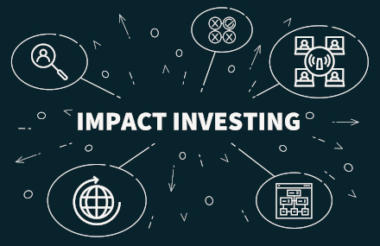What is responsible investing?
Responsible investing rests on four key pillars, which form the bedrock of our investment approach. These are research: screening, engagement and governance. Each pillar is critical to the process, which ultimately seeks to catalyse positive change and encourage best practice approaches in business.
With regards to screening, we seek to both exclude companies or sectors deemed harmful (alcohol, tobacco, gambling, as well as fossil fuels etc), while also commending them positively on ESG grounds such as business ethics, human rights, employment. Where possible, we also seek investment opportunities that address issues such as sustainability, education, health and wellbeing. This part of the process is by no means static. We are sensitive to changing attitudes and priorities in respect to ESG issues. For example, in May 2021 we added highinterest lending to our ethics/values (negative) screen, and evolved environmental management under our ESG/responsibility screen to environment and climate change.
Equally, engagement is a live process and by no means a once-and-done scenario. We continually monitor and engage with the companies we hold and have the power to divest where we no longer consider the company responsible or financially sound.
What is impact investing?
As an approach, impact investing is far more focused on targeting explicit positive environmental and/or social objectives by financing projects with corresponding and measurable real-world outcomes. This may be through ESG-labelled bonds such as green or social bonds, retail charity bonds or indeed other instruments issued by entities whose core mission it is to contribute to such outcomes. One example is Motability, which exists solely to positively impact people with disabilities by availing finance towards their mobility solutions.
We believe there is impact in responsible investing. However, given it is often not the sole aim of the issuer it is important that these approaches are not confused. The investment management industry has a key part to play here in educating the broader market about this nascent sub-sector and to remain transparent. In fact, the FCA recently commented that funds using the word impact in their naming should only do so if they are seeking a non-financial (real-world) impact and only if such impact can be both measured and monitored.
Responsibility is key in both approaches
We also consider it imperative that the issuers of such public debt instruments, whether they can be classified as impact or not, conduct their entire business activities responsibly. This not only factors in other salient ESG considerations but more importantly helps ensure that those investing in instruments with a targeted use of proceeds are not inadvertently helping fund material adverse impacts. For example, we would not look favourably on an oil and gas company issuing a green bond. Ultimately, this more holistic view mitigates against greenwashing and potential reputational damage, helping to ensure strong alignment of a charity’s mission with the overall impact derived from its investments.
David Katimbo-Mugwanya is a senior fund manager at EdenTree
Charity Finance wishes to thank EdenTree for its support with this article










